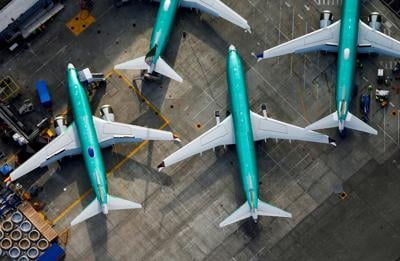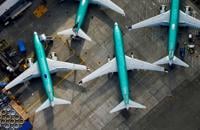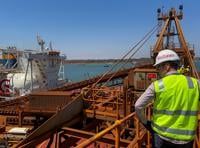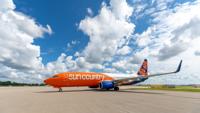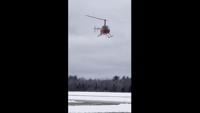WASHINGTON — Boeing said on Wednesday it was replacing the head of its troubled 737 MAX program effective immediately, the first major executive departure since the Jan. 5 mid-air panel blowout of a new Alaska Airlines MAX 9.
Ed Clark, who had been with the planemaker for nearly 18 years, departed as Boeing has been dealing with its latest crisis and has vowed to bolster quality efforts.
Katie Ringgold is replacing him as vice president and general manager of the 737 program, according to a memo seen by Reuters sent to staff by Boeing Commercial Airplanes CEO Stan Deal. The memo also listed other management changes including creation of a senior vice president position for quality and safety.
The planemaker’s production has been curbed by regulators and closely scrutinized by lawmakers and customers. Deal’s memo announcing the change said Boeing was working to ensure “that every airplane we deliver meets or exceeds all quality and safety requirements.”
Boeing has scrambled to explain and strengthen safety procedures after a door panel detached during flight on a brand new Alaska Airlines 737 MAX 9, forcing pilots to make an emergency landing while passengers were exposed to a gaping hole 16,000 feet above the ground.
Boeing’s board met this week and approved the management changes, according to sources familiar with the matter. Clark oversaw the production facility in Renton, Washington, where the plane involved in the accident was completed.
Previously chief mechanic and engineer for the 737, he was named head of the program in 2021, the fifth person in four years to run it.
Boeing said Elizabeth Lund was named to the new position of senior vice president for Boeing Commercial Airlines Quality leading quality control and quality assurance efforts. Mike Fleming will succeed her as senior vice president and general manager, airplane programs. He will also continue leading Boeing’s customer support team.
The latest mishap is Boeing’s second major crisis in recent years, after crashes in 2018 and 2019 of MAX planes killed 346 people. That prompted a grounding of the 737 MAX for 20 months and Boeing was still working to rebuild its reputation.
Airline industry executives have expressed frustration with Boeing’s quality control. France’s Airbus, the only other major manufacturer of commercial jets, last month reported record annual jet orders and confirmed an 11% rise in 2023 deliveries, maintaining the top manufacturing spot against Boeing for a fifth year.
“Firing the head of the MAX program was likely a matter of time, but I don’t think it means very much,” said Richard Aboulafia, managing director of aerospace consultancy AeroDynamic Advisory and a Boeing critic. “The company’s problems are cultural, with the tone being set from the top.”
The memo was first reported by the Seattle Times.
David Nolletti, New York-based head of the aerospace practice at business services consultancy Riveron, said the change would affect how the program is managed and could signal more changes.
“It’s not just a figurehead position,” Nolletti said.
“I think we’ll see more changes at Boeing as they evaluate their position and how their programs are performing.”
Boeing CEO Dave Calhoun plans to meet with Federal Aviation Administration (FAA) chief Mike Whitaker next week after the U.S. aviation regulator traveled to Renton to tour the Boeing 737 plant.
The FAA said Whitaker “will discuss what he observed during his visit to Boeing with the company’s executives when they come to Washington to discuss” quality control and other issues.
Boeing shares closed down 0.8% on Wednesday.
Production delays
The FAA grounded the MAX 9 for several weeks in January and has capped Boeing’s production of the MAX while it audits the manufacturing process after a string of quality issues.
Boeing on Jan. 30 withdrew a request for a key safety exemption for its MAX 7 jet, which could push approval out until at least 2025.
The door panel that flew off the MAX 9 appeared to be missing four key bolts, according to a preliminary report this month from the U.S. National Safety Transportation Board. The panel is a plug in place on some 737 MAX 9s instead of an additional emergency exit.
According to the report, the door plug in question was removed to repair rivet damage, but the NTSB has not found evidence the bolts were re-installed.
The disclosure angered Boeing’s airline customers. Some including Alaska Airlines announced they would conduct enhanced quality oversight of planes before they leave the Boeing factory.

